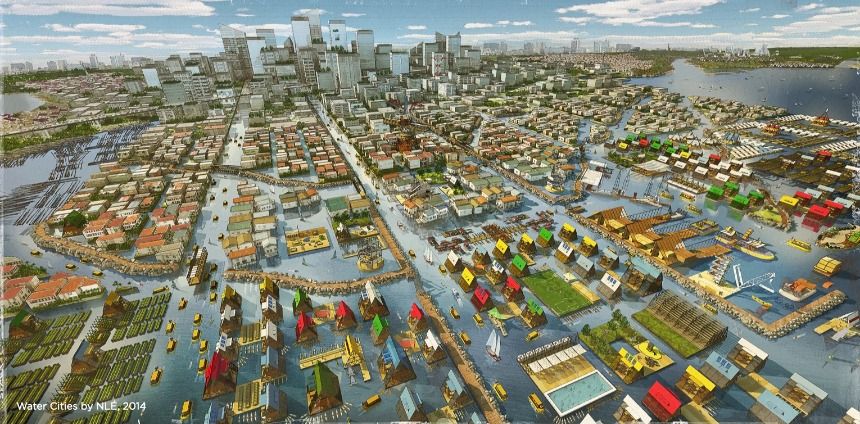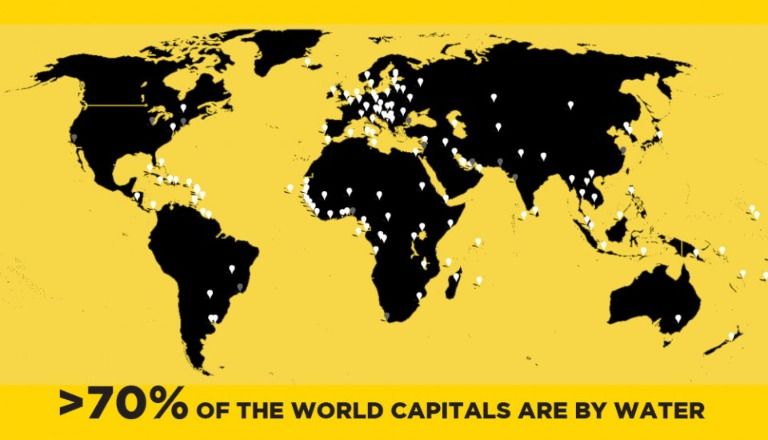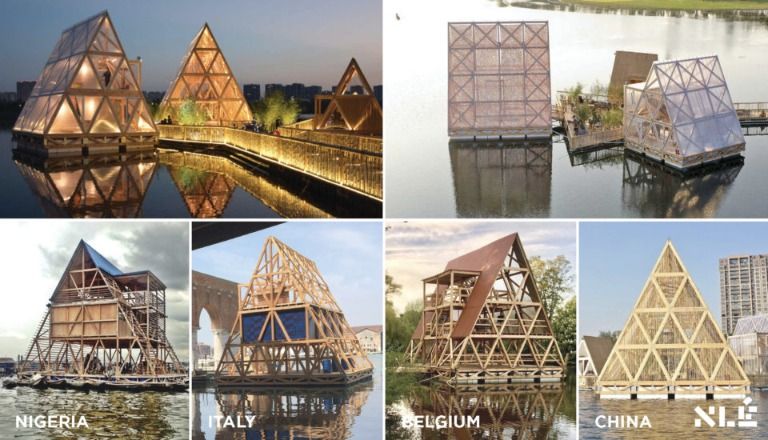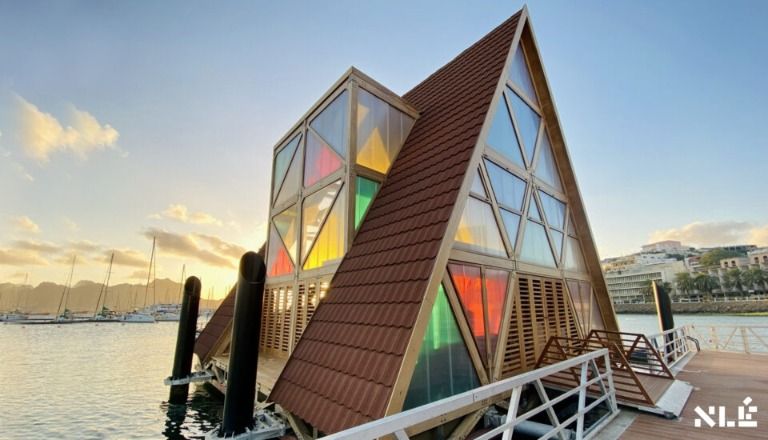African Water Cities
Water Cities® is an ecosystem of nature based solutions for smart, resilient & inclusive life - on and around water - to address challenges & opportunities of rapid urbanisation & climate change adaptation. Building African cities for tomorrow, today

Water Cities® is a nature-based ecosystem for inclusive built environments on and around water towards sustainable urbanisation and climate change adaptation. Through extensive research in several African cities and proactive action in the built environment, Water Cities was established as a venture to pioneer innovative solutions - with exemplary building solutions such as Makoko Floating System (MFS™) - to shape the future of human civilisation.
The African Water Cities® is a specific project and solutions platform established in 2011 to examine challenges of living, building and planning the built environment at the intersections of rapid urbanisation and climate change adaptions in the African context. It seeks to fill gaps within systems to produce disruptive urbanistic changes to positively impact the development of our human civilization within the rapidly changing environment.
More than 70% of the world’s major cities and capitals are by water. Nearly 50% of the world’s population live in those cities, with many such cities expanding rapidly, prone to flooding and sinking.

Africa is the fastest urbanizing place on the planet, with most of its major cities and cities with the most growth potential exist along the coast. Today many coastal African cities experience significant increase in sea levels, rainfall and flooding. The challenge of climate mitigation, adaptation and management of water to bridge inequality in the built environment of African cities through research, education, design and innovation is an urgent and inexhaustible task for the foreseeable year.
The diverse challenges presented by the urbanised areas along Africa’s coastline and inland waterways, also offer us a unique opportunity to deepen knowledge and understanding about the various permutations of urbanisation for Africa’s waterfront cities and communities, as a basis for building innovative, sustainable and locally sensitive adaptation solutions. African urbanisation is a dynamic and rich topic for academic research and analysis. However so far there is very little research that gives weight to waterfront areas within the urban context, as a key resource for the development of sustainable urban planning and design solutions.
Yet, Africa’s coastline contains 29 diverse countries, some of which contain some of the continents most strategically relevant urban areas. How these areas and others supporting waterfront communities respond to the impact of climate change will inevitably have global ramifications. However there is a poignant opportunity to ensure that these ramifications positively contribute to Africa’s development priorities as well as global approaches to the impact of climate change.
“Adaptation costs for climate change are much lower than damage costs without adaptation for most developed coasts, even considering only property losses and human deaths”

Makoko Floating System (MFS™) is one of many Water Cities Systems, built in 5 countries across 3 continents to test diverse regional adaptation potential of a specific system.
The African Water Cities® is a vision based on the premise that we need not fight water, when we can learn to live with it - and take action! While climate adaptation strategies in the built environment are being widely developed in many regions globally, there is a huge knowledge and expertise gap in the development of practical solutions tailored to the social, geographical and economic peculiarities of the urbanising African contexts.

Mansa Floating Hub in Cape Verde (4th iteration of MFS™) completed in August 2021.
Our approach is to develop buildings, infrastructure, renewable energy, waste management and clean water solutions to create a holistic built environment to foster human adaptation to the changing environment specifically the rapidly urbanising African context. We aim to promote local, and global expertise, resources from various social, technical, academic and financial institutions to gather knowledge, through research & education, design & innovation needed to cultivate sustainable values in tomorrow's generation.
Meet the solution owner
